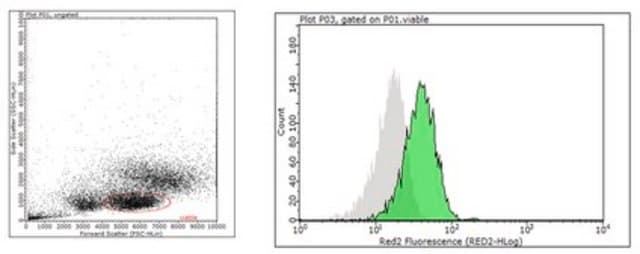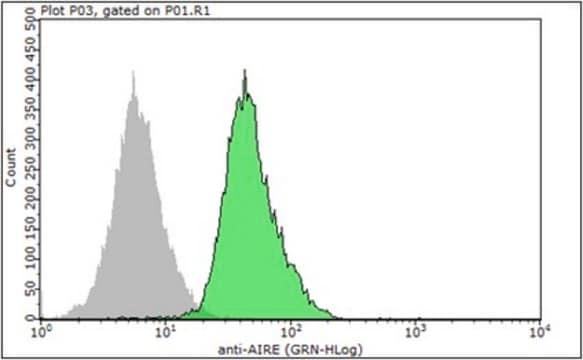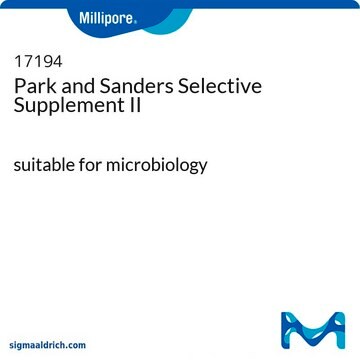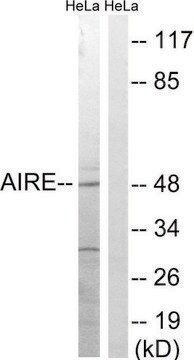09-456
Anti-AIRE Antibody
Upstate®, from rabbit
Synonyme(s) :
APECED protein, Autoimmune polyendocrinopathy candidiasis ectodermal dystrophy
protein, autoimmune polyendocrinopathy candidiasis ectodermal dystrophy 2
autoimmune regulator
, autoimmune regulator (APECED protein), autoimmune
About This Item
Produits recommandés
Source biologique
rabbit
Niveau de qualité
Forme d'anticorps
affinity purified immunoglobulin
Type de produit anticorps
primary antibodies
Clone
polyclonal
Produit purifié par
affinity chromatography
Espèces réactives
mouse
Fabricant/nom de marque
Upstate®
Technique(s)
western blot: suitable
Isotype
IgG
Numéro d'accès NCBI
Numéro d'accès UniProt
Conditions d'expédition
wet ice
Modification post-traductionnelle de la cible
unmodified
Informations sur le gène
mouse ... Aire(11634)
Description générale
Spécificité
Immunogène
Application
Western blot: 1:1000
Inflammation & Immunology
Developmental Signaling
Transcription Factors
RNA Binding Protein (RBP)
Qualité
Western Blot:
A 1:1000 dilution of this lot detected AIRE in murine thymus lysate
Description de la cible
Forme physique
Stockage et stabilité
Remarque sur l'analyse
Murine thymus tissue lysate
Informations légales
Clause de non-responsabilité
Vous ne trouvez pas le bon produit ?
Essayez notre Outil de sélection de produits.
Code de la classe de stockage
10 - Combustible liquids
Classe de danger pour l'eau (WGK)
WGK 2
Point d'éclair (°F)
Not applicable
Point d'éclair (°C)
Not applicable
Certificats d'analyse (COA)
Recherchez un Certificats d'analyse (COA) en saisissant le numéro de lot du produit. Les numéros de lot figurent sur l'étiquette du produit après les mots "Lot" ou "Batch".
Déjà en possession de ce produit ?
Retrouvez la documentation relative aux produits que vous avez récemment achetés dans la Bibliothèque de documents.
Notre équipe de scientifiques dispose d'une expérience dans tous les secteurs de la recherche, notamment en sciences de la vie, science des matériaux, synthèse chimique, chromatographie, analyse et dans de nombreux autres domaines..
Contacter notre Service technique








